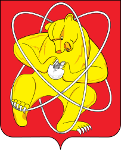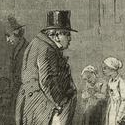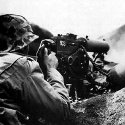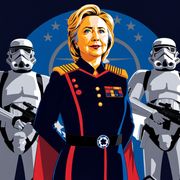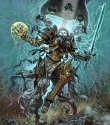|
I've got a question, is Admiral Snackbar dead?
|
|
|
|

|
| # ? Apr 28, 2024 11:35 |
|
Shimrra Jamaane posted:Actually I was thinking more about books on the general history, including militarily, of the Byzantines. But these look pretty cool. I thoroughly enjoyed this series of podcasts. It's not a comprehensive history of the Byzantine emperor, covering only 12 emperors, but it does the job. http://12byzantinerulers.com/
|
|
|
|
So all this talk about Spain what about Portugal? It seems they were too busy mingling with the female natives (or enslaving/killing them) and drinking wine than actually fighting. They were somewhat of a super power at one point and did have a lot of colonies. Until their big brother Spain kept bullying them. Suffice to say we never hear about their military conquest or military anything. I know they were great sailors. I mean, was their Navy powerful in he war aspect or simple trading/colonizing aspect? I think it's funny that he royal family fled to Brazil when Napolean came and The city of Porto just waited it out behind a big wall. Where were they during the world wars? The most recent events was settling some Angolan civil wars I think when they seperated from Portugal in 1975. Nostalgia4Dogges fucked around with this message at 00:48 on Sep 8, 2010 |
|
|
|
He's a part of military history history. 
|
|
|
|
Christoff posted:So all this talk about Spain what about Portugal? It seems they were too busy mingling with the female natives (or enslaving/killing them) and drinking wine than actually fighting. They were somewhat of a super power at one point and did have a lot of colonies. Until their big brother Spain kept bullying them. Suffice to say we never hear about their military conquest or military anything. I know they were great sailors. I mean, was their Navy powerful in he war aspect or simple trading/colonizing aspect? They were a superpower from 1494-1580, when they were annexed by Spain. But they got dominance by trade rather than large colonial territories, Brazil obviously being the huge exception, but in that time they made money off trading posts. They couldn't consistently beat Oman in East Africa though.
|
|
|
|
Cjones posted:Guessing this will never get answered? I know almost nothing about Spain post-Death, sorry. http://www.myarmoury.com/feature_armies_spanish.html this article is supposed to be pretty good though.
|
|
|
|
Christoff posted:So all this talk about Spain what about Portugal? It seems they were too busy mingling with the female natives (or enslaving/killing them) and drinking wine than actually fighting. They were somewhat of a super power at one point and did have a lot of colonies. Until their big brother Spain kept bullying them. Suffice to say we never hear about their military conquest or military anything. I know they were great sailors. I mean, was their Navy powerful in he war aspect or simple trading/colonizing aspect? They were close allies of Britain which pretty much prevented anyone with messing with them from the middle of the 14th century to the end of the 16th. They weren't conquered by Spain as Chade Johnson implies, they were legally forced into a union because the Portuguese king died heirless. However, they still weren't much of a military power; at their height, close alliance with Britain protected their interests, and later they lost most of their colonial possessions to invasions and revolutions. They were, however, a very strong economic power mainly due to Brazil.
|
|
|
|
HeroOfTheRevolution posted:They were close allies of Britain which pretty much prevented anyone with messing with them from the middle of the 14th century to the end of the 16th. They weren't conquered by Spain as Chade Johnson implies, they were legally forced into a union because the Portuguese king died heirless. However, they still weren't much of a military power; at their height, close alliance with Britain protected their interests, and later they lost most of their colonial possessions to invasions and revolutions. They were, however, a very strong economic power mainly due to Brazil. They made a fairly disastrous contribution to World War One, contributing a worthless division to the Western Front and giving Lettow-Vorbeck even more territory to march all over in Africa. In World War Two they were neutral, but basically fairly pro-Allied because of a) the alliance with Britain and b) the dictatorship being fairly sure Britain would win.
|
|
|
|
Jerrith Jaleal posted:I learned about the Flying Tigers back in middle school (years ago) and the teach kept on telling the class that they were key in slowing the Japanese's warmachine advance into China. Did they make that much of an impact on the over all war, once we entered it as a nation? The AVG is a bit of history I've always found pretty fascinating. For all of America's tendency to overstate its role in WWII, these guys (who were of course not a part of the US military) really did something pretty astonishing considering their tactical situation, their size, equipment, supplies, and personnel. The whole thing was hilariously commercial: their leader (Claire Chennault) was almost certainly functioning as much as a salesman for Glenn Curtis as he was as a military consultant, everyone's pay was absolutely ridiculous for the time and place, and pilots even collected a substantial bounty for each Japanese plane they downed. Chennault was quite a character; he was generally regarded as a colossal rear end in a top hat and a mediocre officer during the first phase of his military career, which began as a pilot during WWI (he didn't fly in combat) and didn't progress much over the next decade. He resigned his commission (as a captain...after 27 years of service) after a slapfight with a bunch of other AAC officers (the issue was said to be the vulnerability of bombers to fighter attack; Chennault was right), and found a very lucrative (pay in modern terms was about $175k, or four times what he was getting paid by the army) job as an "advisor" to the Nationalist Chinese, who were just getting started in their showdown with Japan. It is generally also thought that he had been recruited by Curtis aircraft to try and sell their new Hawk 75 fighter to the Chinese; Chennault was given one of these aircraft to fly over there and the Chinese did indeed buy a bundle on Chennault's recommendation, despite the fact that the plane was a piece of crap. Long story short, the war went very poorly for the Chinese, especially in the air. Chennault had proved to be very competent as an advisor and trainer, and the Chinese asked him to help create a more functional air force than the terrible thing they had going. The Chinese Air Force at this time was almost completely nonfunctional: the US and Italy, ironically enough, had been vying for the right to supply and train the KMT and this had generally resulted in a completely ineffective fighting force. Chennault realized this, and decided that a mercenary force would be a lot more effective than a retrained KMT air force. Thus, he left China to try and put something together. While he was gone, one of the more interesting and overlooked units of WWII did their thing: the Soviet Volunteer Group. This was a horde of fliers and ground crew from the VVS, who came to China in very similar circumstances to the AVG. Flying decidedly unmodern aircraft (with the exception of the excellent Polikarpov I-16), the SVG engaged the Japanese in the northern and western fronts of the war, suffering heavy casualties over the period of about 18 months and most famously conducting the ultimately failed defense of Nanjing. This involvement was in the context of a much larger Soviet operation in China, called Operation Zet, where the Russians spent nearly a quarter billion dollars and employed tens of thousands of soldiers performing all manner of military services on behalf of the Chinese. The SVG was withdrawn just prior to the Soviet–Japanese Neutrality Pact being signed in early 1941, and this opened the door for the AVG. The SVG, though it had been pretty badly pummelled at the hands of the Japanese air force (this was the Imperial Japanese Army Air Force, not the Navy Air Service that the USN and USAAF fought for most of the war), had effectively held the line and performed very well. The air battle during this part of the war was absolutely critical to both sides: Chinese supply lines and infrastructure were just awful; most units were supported by only one main road or line, and were supplied largely by horses and small vehicles. As such, the supply lines were extremely vulnerable to air attack, and cutting off a single supply line could effectively neutralize a huge number of already undersupplied troops. Japanese tactical bombers were becoming very skilled interdiction type missions, and so the threat to the Chinese Army was very real. Chennault assembled the AVG in view of this situation. He knew that a fighter unit could effectively defend these supply lines against the bombers, and he also knew that the US would have nothing to do with open hostilities against the Japanese. However, Lend-Lease was getting started and pretty much everyone in Washington knew that the Chinese resistence was critical to the general survival of Asia. Chennault and the Chinese embassy successfully lobbied for materiel support, which came in the form of a hundred Curtis P-40 fighters (only available because they were so lovely the RAF had rejected them despite their desperate need for single seat fighters), and Chennault filled the personnel requirements by throwing gobs of money at qualified pilots and ground crew currently serving on active duty. They all got on ships and wound up in China right about the time of Pearl Harbor. Nearly all of the AVG's action was in Burma, which might be the single most confusing theater of the war. It featured at least seven different countries, a couple of whom switched sides during the fight, a good dose of strange colonial objectives, freedom fighting, genocide, all taking place in some of the worst terrain of the war. The AVG first defended Rangoon (probably their best known battle), keeping the Burma road operational and taking a fairly big chunk out of the IJAF in the process. Rangoon was eventually lost; after this the AVG moved deeper into China and continued to support the losing cause in Burma for the rest of their tour. Their claims of victories ranged pretty wildly; "officially" it was 297, some researchers put it more like 100, the real number is probably somewhere in between. If we take 200 as the number, that represents around 30 aircraft destroyed per month they were in action, which was more than the entire Japanese industry was producing at the time. It also represented somewhere around a quarter of the IJAF's group numbers that were operating in the area at the time, and these numbers were never really recovered. It was a pretty significant contribution for this group of a couple hundred guys who just wanted to get paid. It was also the first real setback the Japanese had suffered during the war, which has its own significance I suppose. A lot of credit for the success should go to Chennault: he was a very capable leader and a particularly adept tactician. He was one of the first air leaders to start seriously assessing the capabilities and limitations of his equipment versus that of his enemies, and as a result he was able to effectively tailor his group's tactics to match the strengths of the P-40 versus their competition (the inferior Ki-27 and the superior Ki-43). They also had a couple of all-world characters in their ranks, most famous among them being Tex Hill and Pappy Boyington, both of whom would go on to forge brilliant wartime careers of their own in different capacities, and Charles Older, who eventually wound up being the judge at Charles Manson's trial.
|
|
|
|
I have always figured that we had the chance to own the entire North American continent, instead of the 50 states we have now. Can anyone provide any insight as to why we did not pursue military action in Mexico to bring the entire country into the fold, and why we never made a play for Canada? Was it a military or political problem?
|
|
|
|
The main insight I can give you is that you're terribly misinformed, and should read a bit about something called the War of 1812. Also possibly another thing called the Mexican-American War. Long story short: USA decides England is occupied with Napoleon and tries to invade Canada. Unfortunately a significant portion of the Canadian population at the time were loyalists who fled the US during the revolution, and weren't too interested in rejoining. Some terribly inept commanders get sent up to do their thing, it goes badly. Napoleon is meanwhile beaten, the British send some of their real forces across the ocean and burn down Washington. Peace is signed, then a British fleet that was already underway attacks New Orleans and gets their poo poo wrecked. Cue 200 years of Americans saying "why don't we just annex Canada already, jesus" and Canadians saying "You tried bitches, let us burn down your White House again."
|
|
|
|
We don't need Canada; we have Bomarcs.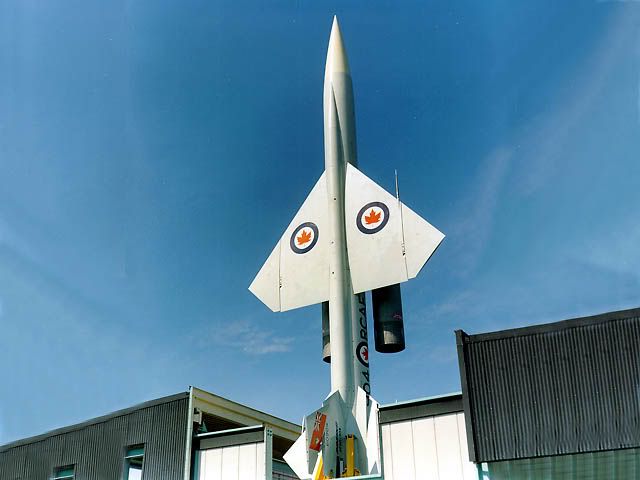
Groda fucked around with this message at 18:59 on Sep 8, 2010 |
|
|
|
The actual Canadian forces during both the Revolutionary War and the War of 1812 were pretty inept, if I recall correctly. It was only thanks to British regulars that they weren't conquered.
|
|
|
|
And Canadians will always talk about the burning of DC like they had something to do with it.
|
|
|
|
Gweed posted:why we never made a play for Canada? There were plans, but the Canadians were prepared.
|
|
|
|
That is awesome, if that war had happened in that time period it would have been one of the most inept showing of arms by both sides in human history.
|
|
|
|
Cjones posted:Guessing this will never get answered? The link that Rodrigo Diaz posted does a good job of explaining what the Spanish army during the 15-16th century looked like and how it operated. During the period it was probably the most effective army in Europe because of its discipline and professionalism. For example, the late-period battle of Rocroi ended in the defeat of a Spanish army (made up of Spaniards, Germans, and Walloons) by the French. The French defeated the Spanish cavalry and then bombarded the remaining pike squares with cannon until the Germans and Walloons fled, but the Spanish tercios remained in formation and continued to beat back French assaults all day in spite of the heavy bombardment. Finally the French offered to let them leave the battlefield with their weapons and flags, rather than continue fighting them. And this was in 1635, quite a while after the best days of the tercio in the 16th century. I know less about the Spanish Navy. I know that at the beginning of the period you're asking about it was pretty technologically advanced, but they fell behind as time went on. This was partially because their ships were designed to suit their strategic requirements, which demanded large ships to carry lots of cargo over huge distances. The English fleet defeated the Armada in large part because their ships were more maneuverable--their cannons were also longer-ranged. One thing to note is that after the failure of the Armada, the Spanish actually just went ahead and rebuilt their fleet. The decline of Spain was tangentially unrelated to the Armada and was due to strategic factors. France was probably more directly responsible for Spain's decline than Britain. Their strategic dilemma was that they had to use limited resources of Spain proper to control their enormous empire outside Spain, which was where they made most of their money. Like today, Spain was not particularly populous by comparison to other European countries. This led them to become completely overextended. The Spanish Armada was large and advanced even after being defeated off England, but it had to be strung out across the planet defending their dispersed possessions and transporting their income back to Spain. This meant they couldn't take any more risks like trying to invade England, so the Armada was a defensive, reactive force afterward. The Spanish Army was also very good but it was also dispersed to defend possessions or fight wars in Italy, North Africa, the Netherlands, the Americas, and Germany. They managed to do this with a remarkable degree of success considering their limited resources until the Franco-Spanish War of 1635-1659, which overlapped with two other wars the Spanish were heavily invested in, the Thirty Years War in Germany and the Eighty Years War in the Netherlands. France and Spain fought each other to a standstill, Spain went bankrupt (twice, if I recall correctly), and finally they signed a treaty which adjusted the border slightly. During this war Spain lost control of Portugal and its colonies, as well as the Netherlands (excepting Belgium). This hurt, a lot, and they dropped from the predominant military power in Europe to a progressively more distant also-ran. A big part of this was that their bankruptcies and substantial loss of income from the Netherlands and Portuguese colonies happened at the same time that important military and governmental reforms were taking place in other states. Sweden, France, England, and the Netherlands were becoming more consolidated and better administrated, and their armies advanced rapidly (e.g. Britain's New Model Army). Spain was not only exhausted but mostly relied on its external territories for its income, so little investment was made either in infrastructure or administration in Spain itself. They just used Spain to farm soldiers and taxes, which made a lot of Castillians leave. The population of Spain actually declined seriously during the 17th century, down to 5 million by 1700, IIRC mostly due to New World emigration. Also, Spain had an oversized military establishment, which meant their budget went to maintaining rather than modernizing their army and navy. There was also the problem that people pointed out earlier in the thread, which was that the Spanish Habsburgs were hilariously inbred and bad at running their country. All of this is really bad for a country, especially as a military matter. Napoleon invading and wrecking up the place for eight years didn't help. Being conquered by France also eventually resulted in practically all its colonies except Cuba and the Philippines becoming independent. Spain also became a political basket case with regular conflict and more than one open war between conservative and liberal factions. So Spain was already kinda crappy by the time Napoleon invaded it, but still considered a great power. After Napoleon, Spain wasn't really a great power anymore. As for how tough Spain's military was in different centuries: 1400s: tough, maybe toughest 1500s: definitely toughest 1600-1660: tied for toughest with France 1660-1700: second place and declining fast 1700-1808: second tier power (behind England, France, Austria, Sweden, Russia, etc.) Napoleonic Wars: took six year vacation from even being a country 1815-1939: to busy fighting each other to fight anybody else tl;dr Spain was the most powerful country in Europe during the 16th century but tried to do too much with limited resources and ended up wrecked by other more up-and-coming countries
|
|
|
|
Shimrra Jamaane posted:I've got a question, is Admiral Snackbar dead? I was just about to ask this, he's been missing since page 8. Anyone with Platinum tried PMing him?
|
|
|
|
HeroOfTheRevolution posted:The actual Canadian forces during both the Revolutionary War and the War of 1812 were pretty inept, if I recall correctly. It was only thanks to British regulars that they weren't conquered. Sort of, but this statement doesn't entirely make sense. What billion dollar bitch said is closer to the truth. The Canadian territories weren't confederated until 1867, so there were no Canadian forces, there was a British colonial force. The commanders who were in place at first pretty inept (as you might assume, they were in charge of a sparsely populated, second rate colony) and insisted on defending one of the territories at the expense of the other, and not mounting any offensive campaigns. The Americans were in equally poor shape though, they weren't prepared for a war at all, as they weren't expecting one. The plan was that they'd march a token force into Canada, declare their "liberation" or whatever and the people would be stoked to join them. Not what happened, even the Quebecois weren't very happy about the idea. By the time veteran British forces arrived the US had realized the actual situation and gotten their poo poo together a little better, so there were sort of two stages of both sides screwing around before starting the war proper. l33t Lurker fucked around with this message at 23:36 on Sep 8, 2010 |
|
|
|
Gweed posted:Can anyone provide any insight as to why we did not pursue military action in Mexico to bring the entire country into the fold, and why we never made a play for Canada? The War of 1812 was just an ugly conflict. Some of the leadership, especially early on, was shockingly inept. Having what I believe was the largest land battle of the war occur after peace had already been reached was, in retrospect, a pretty appropriate way for it all to end. tranceMD fucked around with this message at 07:23 on Sep 9, 2010 |
|
|
|
l33t Lurker posted:Cue 200 years of Americans saying "why don't we just annex Canada already, jesus" and Canadians saying "You tried bitches, let us burn down your White House again." To be fair, cue smarter Americans saying "that could have been a lot worse for us, let's play nice if possible" and smarter Britons saying "that was completely retarded and pointless, let's play nice if possible".
|
|
|
|
l33t Lurker posted:Sort of, but this statement doesn't entirely make sense. What billion dollar bitch said is closer to the truth. The Canadian territories weren't confederated until 1867, so there were no Canadian forces, there was a British colonial force. The commanders who were in place at first pretty inept (as you might assume, they were in charge of a sparsely populated, second rate colony) and insisted on defending one of the territories at the expense of the other, and not mounting any offensive campaigns. Also remember that during the War of 1812 the New England states were completely against the war, continued to trade with Britain during it, and even had the Essex conspiracy to secede from the US. Most of the people who wanted and fought the war were from the west. 64% of all those killed on the American side during the War of 1812 were from Kentucky. Kentucky and Tennessee contributed most of the troops for the war. This was not a national war of conquest, but a war by a bunch of hawks in the center-west region of the US that almost blew up in our faces.
|
|
|
|
Shorter Than Some posted:I was just about to ask this, he's been missing since page 8. Anyone with Platinum tried PMing him? If I read his post history right, his last post on the whole forums was in this thread, in June. I wonder why he ceased posting so suddenly. Hope nothing happened to him
|
|
|
|
bewbies posted:The whole thing was hilariously commercial: their leader (Claire Chennault) was almost certainly functioning as much as a salesman for Glenn Curtis as he was as a military consultant, everyone's pay was absolutely ridiculous for the time and place, and pilots even collected a substantial bounty for each Japanese plane they downed. But seriously, I love getting such a well fleshed-out history of a group very few of the average joes know much about (the SVG and AVG). Thank you!
|
|
|
|
Perestroika posted:If I read his post history right, his last post on the whole forums was in this thread, in June. Add him as a friend in the User Control Panel: he's on ALL the time. So completely fine I assume.
|
|
|
|
Chopstix posted:I dont know if "popular media" portrays them at all, let alone in a good light. For clarification, 'spetsnaz' just means "spetsal'noye naznacheniye" ('special purpose') and there are several different types of spetsnaz units in Russia, from the FSB, MVD, and the Ministry of Defense: especially GRU ('Main Intelligence Directorate of the Russian General Staff' - Military Intel), Naval Spetsnaz (i.e. their version of Navy SEALS), etc. Because there's often so much overlap between the different spetsnaz units (former GRU Spetsnaz joining MVD, former KGB Spetsnaz broken up into GRU and FSB) and operational coordination, they're routinely confused as being one monolithic special forces entity. So to be fair, the Belsan and Dubrovka operations were conducted by elements of FSB Spetsnaz (Alpha and Vympel groups) and MVD SOBR, which are more akin to U.S. SWAT teams "specializing" in antiterrorism ops. Operation Storm-333 was mostly a GRU Spetsnaz operation. While the quality of FSB and MVD Spetsnaz can and does widely vary, GRU Spetsnaz is the hottest of hot poo poo in Russia. GRU Spetsnaz were the best Soviet troops in Afghanistan during their invasion (although if you read "The Bear Goes Over the Mountain", they had a ways to go in figuring out air assault operations compared to the West), and they absolutely wrecked poo poo in Chechnya, i.e. they're almost certainly the ones who reached out and 'missiled' Dudadyev in 1996. I have some questions myself though, if I may: 1) Are there any good books out there on the Viet Cong/NVA experience during the American intervention? I'm basically looking for a Vietnamese version of "Soldat". 2) I remember hearing in middle school that during WWII (or Korea), Japanese (or Chinese) soldiers would wear bulky coats and wrap themselves in chicken wire, take painkillers and amphetamines, and go charging into human wave attacks. The idea allegedly was that .50 cal. U.S. machine gun fire wouldn't as quickly rip body parts off the soldiers, the chicken wire/coat contraption would keep their bodies largely intact to allow them to be somewhat combat effective for a little longer. I kinda' doubt this was the case, but it makes a good story. 3) A fun hypothetical for which I'd love to hear your takes: what would happen if the U.S. erupted in a popular insurrection? How long would it take before the Army basically crushes such a revolt? The idea here is that many a gun nut friend insists that their precious right to bear arms gives them a means to overthrow the government someday. But, seeing as how the Iraq insurgency is largely defeated, one that consisted of several hundred thousand highly motivated Iraqis operating on their own turf far from the U.S., many of whom had military training or combat experience during Iran-Iraq War or Desert Storm, who also had access to fully automatic assault rifles and huge stockpiles of ordnance, bearing a large pool of intellectual resources (many IED makers and cell leaders being engineers and such)...what chance would Billy and his friends with their hunting rifles and pipe bombs stand against the full force of the U.S. Army? 4) I'm looking for good accounts of the Iran-Iraq War, too. What happened there, from a tactical perspective, where Iraq so quickly lost the offensive initiative and ended up getting its rear end handed to it. Just how effective were chemical weapons in the conflict? When and how often was Iran able to respond in kind with chemical weapons? dividebyzero fucked around with this message at 01:56 on Sep 12, 2010 |
|
|
|
dividebyzero posted:2) I remember hearing in middle school that during WWII (or Korea), Japanese (or Chinese) soldiers would wear bulky coats and wrap themselves in chicken wire, take painkillers and amphetamines, and go charging into human wave attacks. The idea allegedly was that .50 cal. U.S. machine gun fire wouldn't as quickly rip body parts off the soldiers, the chicken wire/coat contraption would keep their bodies largely intact to allow them to be somewhat combat effective for a little longer. I kinda' doubt this was the case, but it makes a good story. This is a pretty ridiculous story but potentially fun for kids. The two problems are that (A) bullets, especially WWII/Korean-war era ones which mostly went straight through your body, don't actually dismember you to the extent that you'd need a chicken wire cage to hold your body together and (B) if you were dismembered badly enough to need such a device to hold your guts in, it doesn't matter how many pills you took, you're going to lie down. Additionally, where would the People's Liberation Army get so many pain killers and amphetamines that they could just hand them out? This sounds like an exaggeration of the old saw about bullets failing to stop Chinese infantry in the Korean War because they were wearing heavy winter coats, which is unlikely but remotely possible if we're talking about long range shots from a .30 Carbine. quote:3) A fun hypothetical for which I'd love to hear your takes: what would happen if the U.S. erupted in a popular insurrection? How long would it take before the Army basically crushes such a revolt? The idea here is that many a gun nut friend insists [SNIP] ...what chance would Billy and his friends with their hunting rifles and pipe bombs stand against the full force of the U.S. Army? This fantasy usually relies on the assumption that a substantial portion of the U.S. Army would go over to the rebels if conditions were bad enough to spark a major "gun nut" based popular revolt. This assumption is vital because, to answer your question, the gun nuts have no chance whatsoever without mass defections of regular troops to their side. This is because the army has vehicles and heavy weapons, while militias can have only a limited selection of small arms and possibly IEDs. The Hutaree training videos that you can still find on youtube are a good example of how good their chances are. The video implies that Hutaree thought that when the gubmint/UN came for them, the fight would take the form of small-unit ambushes where they would never face an enemy they couldn't defeat with aimed rifle fire. This is of course totally insane and has been since the Boer War. A government attempt to exterminate a militia cell would more likely take the form of a night attack (night vision is a big advantage for regular army troops) supported by attack helicopters, armored vehicles, and artillery. They would have practically no means to resist this kind of assault. As for IEDs, a major reason that those weapons killed so many soldiers in Iraq is the insurgents' access to unsecured munitions dumps from the Baathist era. In addition they were probably assisted by organizations with experience in bomb-making, like the Quds force or the famous "foreign fighters"--for example the sudden appearance of EFPs in Iraq implies that somebody from outside taught them to use them and provided them with the necessary components. Compare the casualty record from IEDs in Iraq to Afghanistan, where expertise and materiel is harder to get. American militia types would presumptively be less expert and would definitely have poorer access to materials since explosives are for the most part tightly controlled in the US. In the case of a general uprising the militia would probably be unable to make any impact on urban areas. The population of those areas would be unsympathetic to a revolution based on right wing rural militias, and worse yet, American cities have large and relatively well armed police forces. It's possible that right wing militia-types could form the core of a guerrilla movement and take control of hinterland areas like the Adirondacks, backwoods Michigan, and areas of the Rocky Mountain states, but they'd still face serious problems. In contrast to, say, Afghanistan, the infrastructure of the United States is extensive enough that nearly the entire country is easily accessible to military forces. There's not a lot of space for them to hide, and what spaces there are are so isolated from the rest of the country that they'd be inconvenient to stage raids out of. quote:4) I'm looking for good accounts of the Iran-Iraq War, too. What happened there, from a tactical perspective, where Iraq so quickly lost the offensive initiative and ended up getting its rear end handed to it. I've only read a little about this, but basically Iraq's initial success was aided by the fact the Iranian army was in disarray with its officers mostly in prison. After it became clear that the Iraqis were kicking their asses, the ayatollahs released many officers to repel the invasion. They also had the advantage that are more than twice as many Iranians as Iraqis. Additionally Saddam could only be sure of the loyalty of a small part of his population; so mass mobilization could be dangerous for him. The Iranians exploited this advantage by using human wave tactics against the less numerous but more professional and better equipped Iraqis. IIRC the basic plan is that frontal attacks by lower quality troops would pin the Iraqi army in place and deplete its reserves, while the units of the Iranian army that didn't suck (mostly leftovers from the Shahist period) would move in more safely and smash them. This worked really well and eventually the Iranians were in a position to invade Iraq. This turned out to be a bad move. Shi'a Arabs in Iraq weren't very supportive of Saddam's invasion, but they proved more willing to defend Iraq from foreign invaders (they were less sympathetic on religious grounds than the Iranians expected). Also the threat to his regime caused Saddam to deploy chemical weapons, which had a vicious effect on Iran's poorly equipped troops. quote:Just how effective were chemical weapons in the conflict? Iran's penchant for using dense waves of infantry who lacked any kind of protection from chemical weapons made chemical weapons pretty effective for stalling their offensives. In the absence of adequate equipment to protect them, it pretty much doesn't matter how many soldiers you have when you're facing chemical weapons. quote:When and how often was Iran able to respond in kind with chemical weapons? Hopefully somebody else knows more about this. Given that Iraq's chemical weapons were mostly supplied by US companies, and Iran had a negligible chemical industry and minimal access to the arms market, I doubt they were able to get much poison gas together. Schenck v. U.S. fucked around with this message at 05:38 on Sep 12, 2010 |
|
|
|
Trouble Man posted:To be fair, cue smarter Americans saying "that could have been a lot worse for us, let's play nice if possible" and smarter Britons saying "that was completely retarded and pointless, let's play nice if possible". The conflict did solidify the northern American border. Before the war most people didn't really see any division between British North American and the American states. After the war, fear of American invasion placed the seed for Canadian Confederation 50 years later. Also this seems like a good place to mention Dan Carlin's Hardcore History podcast (http://www.dancarlin.com/disp.php/hharchive). He does great work and is always talking about interesting stuff. Every so often he interviews people who influenced him and I just noticed he influenced one of my favourite historians, Gwynne Dyer. Dyer produced probably one of the best series on war and conflict in general, both as a book and as a documentary in the 1980s. Dyer is a remarkable writer and speaker. You can check out what is probably the most famous episode of the War series "Anybody's Son Will Do" on youtube: http://www.youtube.com/watch?v=DShDaJXK5qo
|
|
|
|
dividebyzero posted:
I don't think anyone that gets hit with a 50 cal will be doing anything but dying.I have read in some Korean War books that Thick, heavy winter clothing plus a any sort of equipment that they would carry would stop an m-1 carbine's bullet, which uses a fairly small and relatively underpowered round. The gun itself also suffered in quality as it did not function well in winter conditions, I don't know how that would affect the velocity of the bullet however.
|
|
|
|
I recently played at a change of command ceremony where the Commandant of the Marine Corps was present. As part of the honors to him, there was a 19-gun salute. What is the significance of the number 19 in this case?
|
|
|
|
hooah posted:I recently played at a change of command ceremony where the Commandant of the Marine Corps was present. As part of the honors to him, there was a 19-gun salute. What is the significance of the number 19 in this case? Quote from Wikipedia: "19-gun salutes are reserved for deputy heads of state, chiefs of staff, cabinet members, and 5-star generals. For each flag rank junior to a five-star officer, two guns are subtracted. (e.g., for a four-star admiral, a 17-gun salute is prescribed; a three-star general would rate a 15-gun salute; a two-star, 13-guns and a one-star, 11 guns)."
|
|
|
|
Just Another Lurker posted:Quote from Wikipedia: "19-gun salutes are reserved for deputy heads of state, chiefs of staff, cabinet members, and 5-star generals. For each flag rank junior to a five-star officer, two guns are subtracted. (e.g., for a four-star admiral, a 17-gun salute is prescribed; a three-star general would rate a 15-gun salute; a two-star, 13-guns and a one-star, 11 guns)." So I guess he counts as a chief of staff, then? 'Cause Marines don't get 5-star generals.
|
|
|
|
hooah posted:So I guess he counts as a chief of staff, then? 'Cause Marines don't get 5-star generals. Yep, in fact the highest ranking officer of the army is called the chief of staff of the Army. The four chiefs of staff have four stars, but during a declared war, they are given 5 stars temporarily, including the Marine Commandant. This is just a minor quirk that comes from the second world war, when the British military had 4 and 5 star generals, while the Allied Commander Eisenhower had 4, so he was given 5.
|
|
|
|
Phyzzle posted:Yep, in fact the highest ranking officer of the army is called the chief of staff of the Army. You're close on all points. The highest ranking officer in the army is not necessarily the Chief of Staff. Technically he's equivalent to the combatant commanders...CENTCOM, PACOM, SOUTHCOM, STRATCOM, etc. They have different responsibilities, with the CS basically being in charge of non-theater equipment, personnel, and training. Five-star and higher generals are a special case, where additional rank is needed to clear up any possible chain-of-command issues. For example, to match another nation's rank in a coalition (which is exactly what happened in WWII). It is not inherent, nor automatic that the chiefs of staff would be promoted. It also wouldn't help, because the chiefs of staff have no specific authority in a combat theater. Edit: George Washington is a 7-star general.
|
|
|
|
Phyzzle posted:The four chiefs of staff have four stars, but during a declared war, they are given 5 stars temporarily, including the Marine Commandant. See, I forgot we aren't actually in a declared war. Thanks for clearing that up!
|
|
|
|
Can someone describe in more detail the Iran-Iraq war? specifically the use of Chemical weapons? what was used and how was it used? Since I think this is one of the first cases after world war 1 that chemicals were used in a battlefield? (Agent Orange in Vietnam dosent count)
|
|
|
|
Saint Celestine posted:Since I think this is one of the first cases after world war 1 that chemicals were used in a battlefield? (Agent Orange in Vietnam dosent count) This is incorrect. The Italians used it extensively against the Ethiopians in the 30s, the British probably did against the Kurds in the 20s, and the Japanese certainly used them against the Chinese in the 30s and 40s. Come Cold War time their actual use decreased substantially, though there was plenty of testing, and the Egyptians used chemical weapons in Yemen in the 60s. I'm sure I'm forgetting some examples.
|
|
|
|
Saint Celestine posted:Can someone describe in more detail the Iran-Iraq war? specifically the use of Chemical weapons? what was used and how was it used? Since I think this is one of the first cases after world war 1 that chemicals were used in a battlefield? (Agent Orange in Vietnam dosent count) The Rif War in Morocco, the Russian Civil War, and possibly in the Vietnamese-Cambodian War, Sri Lanka, and Occupied Palestine.
|
|
|
|
I am extremely interested in the history of Chechen rebels ( especially their armament) and would like to know more about their tactics during battles.
JoeCool fucked around with this message at 07:30 on Sep 13, 2010 |
|
|
|

|
| # ? Apr 28, 2024 11:35 |
|
JoeCool posted:I am extremely interested in the history of Chechen rebels ( especially their armament) and would like to know more about their tactics during battles. If I wanted to learn about the Chechen conflict I would probably pick up something from Anna Politkovskaya. She was a famous opposition journalist in Russia who made her reputation in Chechnya. She also made a lot enemies, survived a poisoning attempt in 2004, and finally was assassinated in Moscow a couple years ago. I don't think her work focuses overmuch on the military aspect, though. In terms of armament the Chechens used basically the same weapons as the Russians, since they both worked from Soviet stockpiles. Chechen forces were generally limited to infantry, so you're talking about AK-74 and SVD rifles, PKM and RPK machineguns, RPG-7s and -18s, mortars for indirect fire support, and the like. There are copious internet resources to learn about Soviet military equipment. Chechen success was due to Russian troops having extremely poor morale and leadership, sort of like the Winter War in Finland. The initial major victory in the First Battle of Grozny happened because the Russian commander assaulted a built up area with tanks and other AFVs without sufficient infantry escort. Since I'm a big nerd I'm going to go back to Soviet military history to explain why this was very stupid. Red Army military doctrine was centered on something termed "deep battle." To use WWIII as our example, after operational deception to confuse NATO as to what they were doing and where the blow would fall, Soviet tanks supported by mechanized infantry mounted in BMP IFVs and BTR APCs would conduct mass attacks in the North European plain. Using heavy artillery support (possibly including tactical nuclear weapons), superior numbers, and superior speed they would outflank, envelop, and overwhelm NATO forces in their way while bypassing anything they couldn't immediately destroy. For example, any built-up urban areas that they didn't need to capture in order to advance would be bypassed. Infantry divisions following in the wake of the spearheads had responsibility for reducing surrounded strongpoints. Taking into consideration the size of the Red Army, NATO planners generally estimated that the Soviets would be washing their feet in the Atlantic pretty quickly--which is why the American plan for WWIII considered Europe indefensible and relied on mutually assured destruction to deter the Soviets from invading. Now at the same time that D-Day was happening in France, an Eastern Front battle called "Operation Bagration" which we don't hear nearly as much about in America was taking place in Belarus. Bagration was the classic deep battle and it resulted in the total disintegration of Army Group Center, the most powerful element of the entire German Army. Germany lost something like a half million men including a large portion of their total remaining tank forces. David M. Glantz is the guy to read if you want to learn about deep battle or the Red Army in WWII generally. I personally find it super interesting, which is part of the reason I brought it up. Glancing at wikipedia they actually have one of their unusually non-lovely articles about this topic, which is a good primer. My reason for the digression is that the Soviet army and their tank units especially were designed for the kind of fight described above. Soviet tanks were typically less well protected than NATO models like the Leopard 2, M1 Abrams, or Challenger, especially from the flanks and rear. Fortunately they were cheaper and therefore more numerous, they could hit just as hard, and they had some special characteristics. In about 30 minutes the crew of a T-72 could mount a snorkel to the engine and seal the hatches and drive right through a river, while a NATO tank wasted precious hours waiting for engineers to set up bridging equipment. They also used autoloaders, which were slightly less efficient than a human at loading ammunition, but eliminated the need for one more crewman and wouldn't be fatigued by extended firing. Another important idiosyncrasy of Soviet armored vehicles is that the crew has an exceptionally hard time seeing out of the vehicle when they're buttoned up. IIRC the BMP series has something like a 25 foot blind spot, where if you're within 25 feet of the vehicle, the crew couldn't simply can't see you. The Soviets also favored very low turrets, which meant their cannons have very limited maximum depression and they have a hard time assuming a "hull-down" position and/or firing at targets at a lower elevation. Since Soviet forces planned to be duking it out against NATO in enormous maneuver operation on the North European plain, this isn't too big a problem. On the other hand, if you decide to just hop into your tanks and drive into the middle of a built up city like Grozny without infantry support, it's a huge problem. The Chechens holed up in buildings throughout Grozny and devastated the Russians armored vehicles with RPG fire to their side and rear armor. The Chechens particularly liked to fire from basements, where the Russian crews had an especially hard time spotting them and often couldn't even return fire, since their cannons can't depress very far. The Chechens kicked the Russian's asses really badly and forced them to retreat in disarray, which opened up the First Chechen War. The Chechen access to Soviet munitions stockpiles made them maybe the best equipped insurgent army ever, their leaders and many of the rank-and-file soldiers had served in the Soviet Army so they knew exactly what kind of fight they were in for (this was why they knew to use basements as prime anti-tank positions), they were very familiar with the lay of the land (important for fighting in a mountain range like the Caucasus), and they were much more motivated than the Russian soldiers. Their tactics reflected these advantages, and in the first war they were able to seriously outfight the Russians. Basically they used surprise attacks and ambushes to maximally exploit their superior knowledge of local terrain and confuse the demoralized Russians, so that they outmaneuvered them completely and neutralized their force advantage. In this way they were actually able to retake Grozny by surprise after the Russians finally captured it. The Chechens won the first war. Of course, the Russian learned their lesson and came back in 1999 and systematically deployed overwhelming force. The best example of the change in their strategy is the fact that rather than rush into Grozny they informed the population that they were going to bombard it, allowed them to evacuate, then destroyed the city and occupied the rubble. Since the defeat of the Chechen separatists in 1999 a partial political settlement has been effected and Chechnya is mostly secured under a pro-Moscow government. There's still an insurgency but it is marginalized and contained by the efforts of the current president, who is Putin's buddy and has no respect for human rights. The Chechen separatists know that they're militarily totally outmatched, so they've resorted to terrorism. Their most spectacular efforts were at a theater in Moscow in 2002 and a school in Beslan in 2004. Schenck v. U.S. fucked around with this message at 01:04 on Sep 14, 2010 |
|
|







